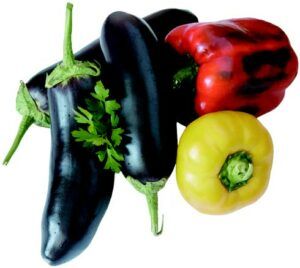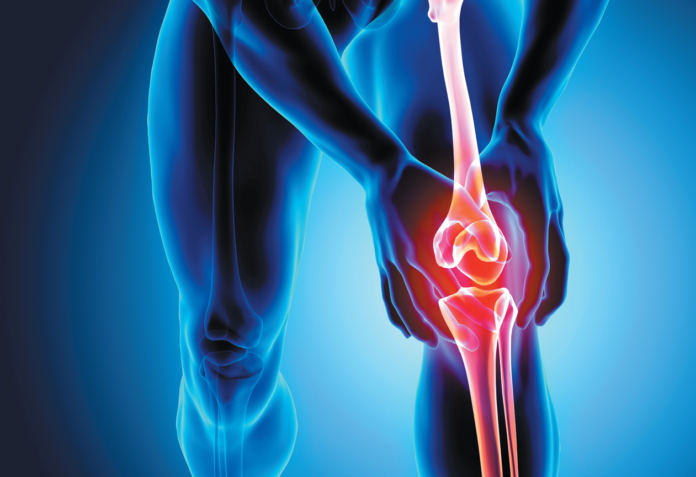If you currently suffer from joint pain—or hope to prevent it—don’t be tempted by ads and fads. Beyond taking any medications recommended by your healthcare provider, there are steps you can take to ease pain and protect joints.
What Works. To protect your joints, be careful at work and at play. Sports- or work-related injuries to joints can increase the likelihood of developing osteoarthritis. Wear protective equipment and appropriate footwear, and avoid repetitive motion to minimize or prevent joint damage. If you already have arthritis, physical activity is a simple, effective, non-drug way to reduce pain for many people. “In our research, patients with knee osteoarthritis began to see reduced pain and increased function four to five weeks into 12-week interventions with either Tai Chi or physical therapy,” says Chenchen Wang, MD, MSc, director of the Center for Complementary and Integrative Medicine at Tufts Medical Center. “Our results indicate individuals with knee osteoarthritis will likely benefit from mind-body exercise therapy regardless of pre-intervention activity levels.” Low-impact activities like the traditional Chinese mind-body exercise Tai Chi, walking, bicycling, and swimming do not put too much stress on the joints or involve twisting and have a low risk of injury.
Evidence also supports the use of acupuncture for some pain. “The available evidence suggests acupuncture is a safe and reasonable referral option that may provide short-term pain relief for patients with symptomatic knee osteoarthritis and chronic low back pain,” says Wang. “Acupuncture may also have a beneficial role for fibromyalgia. However, the available evidence does not support the use of acupuncture for treating hip osteoarthritis and rheumatoid arthritis.” Talk to your healthcare provider before trying any new approaches to managing your pain.
The Role of Diet. For people with overweight and obesity, losing weight can reduce stress on joints (particularly weight bearing joints like the hips and knees). Losing as little as 10 to 12 pounds has been found to improve pain and function for people with arthritis.
There are no supplements, foods, or special diet plans that can cure conditions that cause joint pain, but a healthy dietary pattern may help keep joints healthy and might even reduce pain.
Unstable atoms called free radicals can damage cells and lead to inflammation. “Antioxidants in plant foods help neutralize free radicals,” says Melissa Prest, DCN, RDN, spokesperson for the Academy of Nutrition and Dietetics. “Dietary patterns rich in plant foods may therefore help reduce inflammation.”
For rheumatoid arthritis, for example, the Arthritis Foundation recommends including plenty of fruits and vegetables along with fatty fish, whole grains, peas and beans, nuts, and olive oil.

phytochemicals.
Image © Galina Tolochko | Getty Images
Diet Don’ts? Several diets marketed to people with joint pain restrict intake of foods like dairy, grains, legumes, nuts, and seeds. “These foods are part of a recommended healthy dietary pattern associated with cardiovascular health, lower inflammation, and overall wellness,” says Prest. Highly restrictive diets are unproven and could potentially lead to dietary imbalances.
Contrary to popular belief, research does not support the idea that foods from plants in the nightshade family (like tomatoes, potatoes, eggplants, and peppers) are inflammatory. High intake of omega-6 polyunsaturated fatty acids (found in nuts, seeds, and plant oils) has also been suggested to be inflammatory. But studies in healthy human adults have found that increased intake of these common fats does not increase concentrations of inflammatory markers.
There is limited evidence regarding the effectiveness of the various supplements marketed for easing joint pain. Even “natural” supplements can interact adversely with medications, so be sure to talk to your pharmacist or doctor before taking any supplements.
If you are experiencing joint pain, get an accurate diagnosis and start treatment as soon as possible to help minimize symptoms and prevent the disease from getting worse. Meanwhile, keep in mind that a dietary pattern good for overall health may also help relieve joint pain.
Try these tips for avoiding or managing joint pain:
- TALK TO A DOCTOR: Diagnosis is essential for management and slowing progression. Ask whether you would benefit from a referral to a Registered Dietitian.
- MOVE: Physical activity is likely to help ease pain from osteoarthritis. Try low-impact, joint-friendly Tai-Chi, walking, swimming, and bicycling.
- EAT WELL: Consume a healthy dietary pattern that includes plenty of plant foods and is low in refined grains and added sugar.
- DON’T FALL FOR ADS AND FADS: Most joint supplements and special “anti-inflammatory” or “immune system” diets are unproven, and they can carry health risks. Talk to your doctor or pharmacist.

























I’d like to see more research on diet. My own experience has shown me dramatically how my died has affected arthritis pain:
1) After going a careful elimination of sugar for a one month “cold turkey” trial, I discovered I had lost my taste and compulsion for sugar and that when I did eat things with sugar, it was too sweet. That solved the often-heard “I could never give up sugar” comment from others. Maple syrup and honey solved the reduced use for sweetness–and my hand, knee and hip pain absolutely ended.
2) While I don’t eat a lot of tomatoes out of season, one year I had access to a garden and binged on tomatoes every day. Soon, my pain moved in and increased until I stopped eating them. Random use throughout the year still doesn’t cause pain but this summer, again I have a big supply at hand and my knee has locked up in pain.
Given how sugar has been used by the food industry to manipulate out diets, I think a serious study of whether sugar in the diet causes pain, in addition to the usual things like obesity.